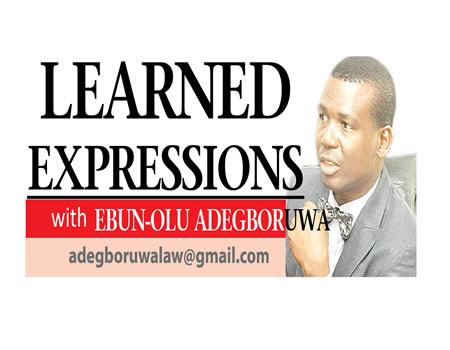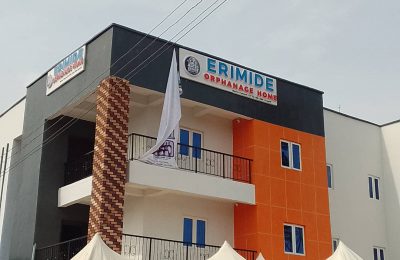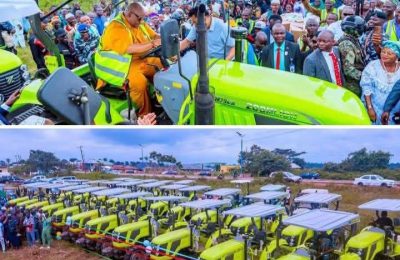

Year in and year out, the Independent National Electoral Commission, INEC, conducts elections into various offices in Nigeria, either through the main general elections, the bye-elections or other elections. INEC has been involved in the conduct of elections for an unbroken period of twenty-four years on, from 1999 to 2023. It would seem however that there is still a lot to do get the electoral umpire moving. For sure, INEC is the only statutory body authorised to organise or conduct elections in Nigeria, in respect of certain offices created by the Constitution.
INEC is one of the federal executive agencies of the State established under section 153 (1) of the 1999 Constitution as amended, with its functions stated in paragraph 15 of the Third Schedule of the said Constitution. Under and by virtue of paragraph 14 of the said Third Schedule, the Chairman of INEC should be at least forty years old, he must be non-partisan, he must not be a member of a political party and he must be a person of unquestionable integrity.

By law, the major functions of INEC are to:
* organize, undertake and supervise all elections into major positions of national importance as stated in the Constitution;
* register political parties;
* monitor the organisation and operation of the political parties, including their finances, conventions, congresses and party primaries;
* arrange and conduct the registration of persons qualified to vote and prepare, maintain and revise the register of voters for the purpose of any election;
* monitor political campaigns and provide rules and regulations which shall govern the political parties.
From all the above, INEC is the alpha and omega of major elections in Nigeria. This is further confirmed by section 158 (1) of the Constitution which states that INEC shall not be subject to the direction or control of any other authority or person. In plain language, the Constitution has set out to establish an electoral body that is truly independent, because of the unique roles that INEC has to play in the emergence of leaders across the land. Statutorily and financially therefore, the goal is to make INEC a self-accounting body, in order to guarantee its independence and impartiality. But this has not been the case at all, over the years.
Now let us relate all these with the recent presidential and national assembly elections that were held on February 25, 2023. There were too many challenges associated with the registration of voters and issuance and collection of the permanent voter’s cards, which indeed should be the foundation of any electoral success. Without any doubt whatsoever, there was some form of disconnect between INEC and the voters, in terms of voter education and information, especially in relation to the collection of the voter cards. The procedure was unduly bureaucratic, unwieldy and frustrating. You just have to keep going and going, at times for many days on end. With the resources committed to this exercise, there is no reason any voter should have been denied this entitlement at all. To the extent that a court in Abuja had to issue an order upon INEC to allow Nigerians with temporary voter cards to participate in the elections!
Then comes the main election. The first thing to note is that INEC cannot boast of adequate personnel to handle its very sensitive matters. For sure, the Constitution has stated clearly that its personnel must be impartial and non-partisan. For crying out loud, how do you recruit youth corps members from all over the country and you don’t expect them to be partisan? When they have parents and relations some of whom are actively involved in politics? And some of the youth corps members themselves are active politicians! There is just no way anyone can expect loyalty from a youth whose father, mother, brother or uncle is contesting election on the platform of a political party, no matter the jurisdiction of his posting, as loyalty for the presidential election for instance, is to the party, not the individual.
Then comes the returning officers, who are mostly members of the academic community, recruited on temporary contracts to assist in the collation and announcement of the election results. These are very elderly men and women mostly in their late fifties or early sixties, who have risen in rank through the system to become Vice-Chancellors, over many years. The Supreme Court has recently ruled that civil servants are not exempted from participating in politics, thus making it possible for these returning officers to have allegiance to certain political interests. This is not to impugn their integrity in any way, but it is possible that in the process of time, a lecturer may have become influenced by one political leaning or the other. The issue then is that there is no way INEC could boast of the impartiality or neutrality of its ad hoc personnel, not to be biased in one way or the other, in favour of or against a particular political party.
On the day of election itself, we met the unexpected, as there were cases of locations that were totally neglected by INEC, which did not benefit from the distribution of election materials, especially in the difficult terrains of the Niger Delta and other rural areas. In some other cases, the election materials did not arrive early, whilst yet in other cases, INEC personnel were simply overwhelmed by partisan security agencies or thugs recruited by politicians. It was a case of general unpreparedness on the part of INEC, notwithstanding all the time it had to prepare and organise the elections and the huge funds committed to it. For a fact, INEC budgeted a whooping N355B for the 2023 elections, broken down into several categories. Nigerians put pressure on the National Assembly to approve the budget in order to guarantee free, fair and credible elections. The breakdown includes:
* Printing of ballot papers; *Logistics expenses; * Logistics for technical officers
* Procurement of non-sensitive materials; * Feeding of policemen and other security personnel; * Election day allowances for ad-hoc staff;
* Deployment of support staff; * Campaign finance tracking; * Monitoring of parties, primaries
* Supervision and reconnaissance;
* Outreach activities; * Interface with groups; * Advertisement; *Voter education; * Situation room, etc.
There are still many more of these ridiculous items budgeted by INEC and for which fund was duly released, but for which no tangible results were obtained. It should be possible for the National Assembly as part of its oversight functions, to do a thorough audit of INEC finances, especially against the background of the poor outing of the agency in the last presidential and national assembly elections, which is nothing but money down the drain. As we approach the governorship and house of assembly elections, the only way the electoral umpire will continue to earn the confidence of Nigerians is to go back to the drawing board to improve upon its game. Elections most times have to do with the perception of the people and unless there is an apparent display of neutrality and capacity, the people may soon become weary with INEC and its controversial elections. Given that technology is subject to errors and glitches as they now call them, there is an urgent need for INEC to douse the suspicions that characterized the presidential and National Assembly elections. The governorship and house of assembly elections are generally regarded as local games for which there is a greater degree of involvement by the people in the grassroots, which is why there is need for solid preparations by INEC in order to avoid the pitfalls of the past. Through the tracking device of technology, INEC should be able to determine the locations of its personnel who have been assigned to different polling units into monitors and checkmate cases of late deployment of staff and failure to upload election results.
Whereas we do not at all discountenance the efforts put into the electoral process by INEC, but once the lapses seem to overwhelm these efforts, it becomes very difficult to assess the electoral body for any serious pass mark. Thus, we all expect a better outing, come Saturday. Enough has been said, time has been given and fund has been provided, so let there be no further excuses.
YOU SHOULD NOT MISS THESE HEADLINES FROM NIGERIAN TRIBUNE
Governorship poll: Lagos, Oyo, Nasarawa, Rivers, Delta, Kaduna, five others are key battle states
2023 elections: Tinubu’s victory not God’s plan for Nigeria, Peter Obi replies Aisha Buhari, others
I never intended to toy with any lady’s emotions —Yemi Cregx
2023 presidential poll: We’ll hit streets if courts don’t work – LP
Super Eagles legend Vincent Enyeama ranked greatest African goalkeeper








